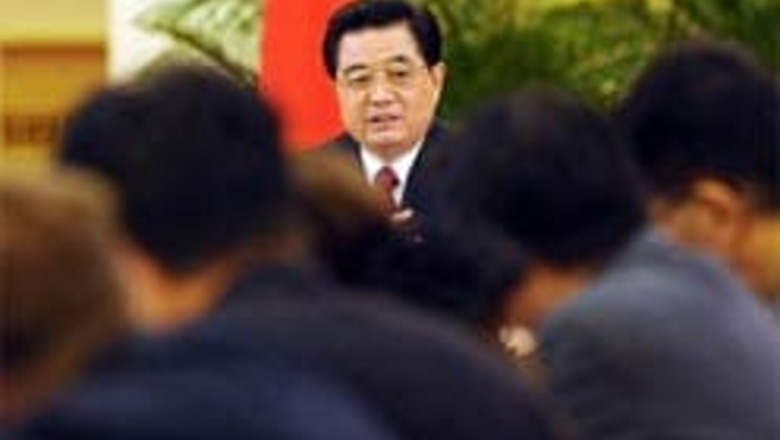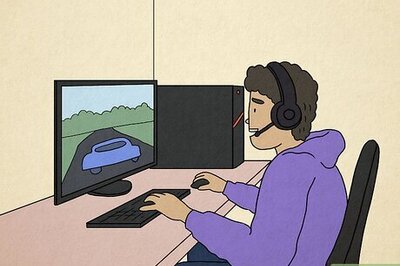
views
Beijing: Chinese President Hu Jintao appealed on Friday to keep politics out of the Olympics, trying to deflect international criticism one week before an event that has put the spotlight on Beijing's behaviour at home and abroad.
The run-up to the Olympics, which Beijing hopes will be a showcase for its rising global power, has been marred by a series of controversies -- the latest when China backtracked on Internet freedoms for the visiting foreign press.
"By hosting the Beijing Games we will show the world that the Chinese people are a peace-loving nation. It's only inevitable that people from different countries and regions of the world don't see eye-to-eye on certain issues," Hu said in an interview with foreign media.
"I don't think politicising the Olympic Games will do any good to address these issues," he said. "It runs counter to the Olympic spirit and also to the shared aspirations of the people of the world."
With 20,000 journalists arriving for the Olympics, the Communist Party leadership is facing unprecedented scrutiny from up close -- and China has tried to keep the focus on sport instead of politics and human rights.
From the March crackdown in Tibet to the protests that greeted the Olympic torch relay to China's cozy relationship with the Sudan regime blamed for the tragedy of Darfur, however, politics has repeatedly intervened.
Critics have accused Beijing of reaping the prestige of hosting the Games but not living up to promises it made to win them, including improvements in its record on human rights.
Amnesty website unblocked but others remain inaccesible
The latest controversy flared this week when foreign press at the Olympic media centre found they could not access a wide range of Internet sites, which led to a new round of criticism of Beijing from around the globe.
The move was an embarrassment for the International Olympic Committee, which also emerged red-faced when the worldwide torch relay had to be cut short because of angry protests -- including at the first lighting of the flame.
IOC president Jacques Rogge last month promised that the foreign media would have unfettered access to the Internet.
On Friday, the previously barred websites of rights group Amnesty International, media watchdog Reporters Without Borders and German broadcaster Deutsche Welle were accessible.
"It's a good thing," said IOC spokeswoman Giselle Davies.
But many other sites were still blocked, including those linked to Chinese dissidents, the outlawed Falungong spiritual movement, the Tibetan government-in-exile and sites with information on the 1989 Tiananmen massacre.
"As always we will continue to provide facilities for foreign journalists coming to China to report," Hu said, without commenting on the changes.


















Comments
0 comment